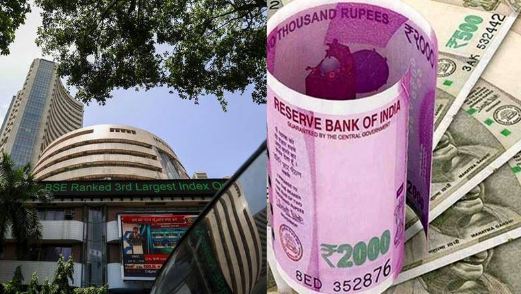For decades, journalism was considered a job for highly skilled professionals, and then came digital media, which made the journalists of the old school mere trolls. With the proliferation of digital media, every citizen is a journalist and the people pushing a certain political agenda for cash or in-kind benefits are sidelined.
A similar kind of revolution is taking place in the stock markets across the world, known as Retail Investors. For decades, investing was considered a highly skilled job requiring professionals of top-notch. However, with everyone having a Demat account and access to the same information (not in the United States where the hedge funds and other money managers have insider info), every person is a professional investor.
Read More- ‘Attack on private sector is unacceptable,’ says Modi as we behold the rise of a Chanakyan economy
So, just like the rise of digital media brought the concept of citizen journalism, the digital trading of stocks is bringing the ‘retail investors’ to the forefront in the financial markets.
In the last few years, the number of retail investors has risen up exponentially. Retail investment facilitator platforms like Robinhood in the United States and Zerodha in India have brought millions of investors into the stock market.
Moreover, the investing behaviour of these investors is very different from professional investors who sometimes use complex mathematical modelling to make investment decisions. Retail investors play around emotions and consumer experience, and the Gamestop saga in the United States was the best example of that.
With the growing number of retail investors and trading volumes, now the retail investors are taking over mutual funds and hedge funds. As per research by Financial Times, now the trading volumes of retail investors is as much as that of mutual funds and hedge funds combined.
In India, too, a record number of Demat accounts were opened in the last few years, especially during the lockdown. Simultaneously, the equity investment in mutual funds (in which a retail investor gives money to professional managers for investing) has declined, and the Coronavirus pandemic induced lockdown only exacerbated the trend.
This signifies an important behavioural trait – people prefer to manage their own money instead of giving it to money managers if they have time and access to infrastructure. In the next five to ten years, almost everyone in the country would have a Demat account and would be trading actively in the stock market through their mobile phones instead of investing in mutual funds or giving money to hedge funds.
A few years ago, the professional investors used to call the investment made by the retail investor ‘dumb money’, just like the elite journalists who considered (many of them having the same opinion even now) the average citizen of the country who does not go according to their whims, fancies and political opinions as ‘dumb’.
The retail investors have become such a lucrative group that a few weeks ago, the Reserve Bank of India has announced that it will allow retail investors to directly invest in government bonds (read government debts).
The growing confidence of investors in the Indian stock market (which is very professionally regulated as compared to the American stock market) and digital technology have brought crores of retail investors into the market. And now, even the Government of India wants to tap into the savings of the common people to finance itself.
Read More- The unique nature of Indian economy is visible again, MNCs ride high on rising domestic demand
The rise of retail investors in countries like India and the United States would make the majority of money managers irrelevant very soon, just like citizen journalism made the so-called “opinion makers” irrelevant.
